I did really want this to work, you know.
The idea of switching off a bit, tuning into a podcast and letting your commute take care of itself sounds so much better than being stuck in traffic.
And when the weather turns rough, staying dry on the bus sounds a lot more appealing than walking or cycling to work.
Of course, the bus service has to be reliable, convenient and good value for money if it’s going to tempt people into leaving the car at home.
And unfortunately in Inverness, that is where the bubble bursts.
Plenty of reasons to give bus service a go
I’ve seen a lot online about bus services in Inverness this year.
There has been plenty of agitation on social media – with people unhappy about services being delayed or cancelled.
There’s clearly a shortage of drivers and that is leaving the hardy souls behind the wheel under even more pressure.
Inspired by my P&J colleague David Mackay’s positive experience with the m.connect bus service in Moray, I decided to give it a shot myself to see if it’s as bad as some people have been saying.
I was full of optimism as I strode along Culloden’s Moray Park Avenue to the nearest stop, arriving around 10 minutes before the number three service was due at 9.59am.
The information board was blank but that’s OK, it’s all about the app these days isn’t it?
And the Stagecoach app looks the part. It was confidently telling me the service was on time.
And do you know what else, cherished bus user? Taking this journey by bus will save at least 858g of CO2 compared to going by car.
So the app was telling me. But the warm, slightly smug feeling that gave me was very quickly washed away.
Because it was now 10.10am and there was no sign of the number three.
Driver’s sympathy after Inverness bus cancelled
It’s worth pointing out that this journey took place on October 31, the day before a wide round of cancellations were announced by Stagecoach.
More cancellations followed on Monday and Tuesday – so apparently, this was one of the good days.
The app told me my bus was on time – and it just wasn’t.
At 10.15am, I had a decision to make.
Should I stick with my stop and hope the 10.29am service arrives – or wander down to Barn Church Road to try to catch the number one instead?
I decided to stick in the same place and thankfully, I was rewarded. To my delight, the 10.29am service was only five minutes late.
I climbed aboard, forked out £5.70 for a return ticket and asked my driver what happened to the 9.59am bus.
The driver, a polite man called Enzo, was sympathetic.
“I can only apologise,” he said. “I think we’ve had a lot of cancellations today.”
£5.70 for a four-to-five mile journey seems a bit pricey. But at least I’d definitely get a seat – there was no one else on the bus.
I’m no stranger to a central belt-bound Megabus, but it’s been years since I regularly took the bus within Inverness.
And you very quickly notice the benefits that modern technology has delivered.
There’s a USB port to charge your phone, an automated voice tells what stop is coming up and you can follow along on the app itself.
And on this service, there was plenty of time to kill.
‘If I had a car, there’s no way I’d be on this bus’
If you want to visit every nook and cranny on the east side of Inverness, this is definitely the service for you.
We meandered through Culloden, Smithton, Westhill and Cradlehall before trundling to a brief stop outside Inverness Campus.
Along the way, a smattering of passengers climbed on – most of them under 22 or over 60 and travelling for free.
I suppose you can’t complain too much if the price is right. There were a few in the middle range though, who got on to travel to Raigmore Hospital.
I asked one about their experience using the service, saying that my earlier bus hadn’t turned up without any warning.
“I’m not surprised,” the man said. “That happens all the time. If I had a car, there’s no way I would be on this bus.”
Hmm. Not exactly a ringing endorsement.
There was a bit of chatter at the front of the bus and we’re told that the Raigmore Bus Gate is broken, meaning we need to take a more convoluted route in and out of the Raigmore estate.
No one seems particularly bothered by that delay though – perhaps they’ve just been hardened to the reality of their service not running on time.
Eventually, the bus arrives in Academy Street – at the heart of Inverness city centre – after a 41-minute journey.
My first bus was due to arrive here at 10.41am and it’s now 11.15am, so it’s about half an hour later than I was expecting.
How can bus services be improved in Inverness?
For the journey back, I switched to the speedier number 11 service bound for Inverness Airport.
It ran when it said it would and got to Culloden in about half the time.
The only downside is that the bus stop is a fair bit further away – but I’m a reasonably fit man in my 30s, so it’s definitely a trade-off worth taking.
That might not be the case for everyone though.
And that’s one of my main takeaways from using the service.
There are lots of people who want to make positive choices as part of the country’s transition towards net zero.
But if there isn’t a good enough incentive to use it, people won’t get out of their cars.
You need to be able to rely on the service being on time – or at the very least, turning up – if you’re using it to travel to work or go to a hospital appointment.
It’s a lifeline service for loads of people. And regularly, they’re being let down.
Plenty of people have a pop at Stagecoach. I can see why – but you’ve got to be fair about it.
They’re going through a staffing crisis and fares have to be set at a level that allows them to cover costs and pay their drivers enough to attract and retain them.
If the service isn’t up to scratch, people won’t use it. And if people don’t use it, there’s less money around to improve it.
It’s a vicious circle and it seems unlikely to change unless there’s some government intervention.
What have Stagecoach said about it?
I asked Stagecoach about my cancelled bus and whether their customers believe it provides good value for money.
A spokeswoman said: “We apologise to customers whose journeys have been impacted by recent service provision issues.
“Over 97% of our services operated as planned over the past week [October 25-31], and we expect to see improvements continue.
“Our fare structure reflects increasing operational costs, however, we believe our range of tickets continues to provide good value for our customers.”
In the wake of a huge number of cancelled services, Stagecoach announced there are a “significant” number of drivers progressing through its training school.
Once they’re on the road, the company expects the service to improve.
Time will tell how big that improvement will be.
For more Inverness news and updates, visit our dedicated page and join our local Facebook group.
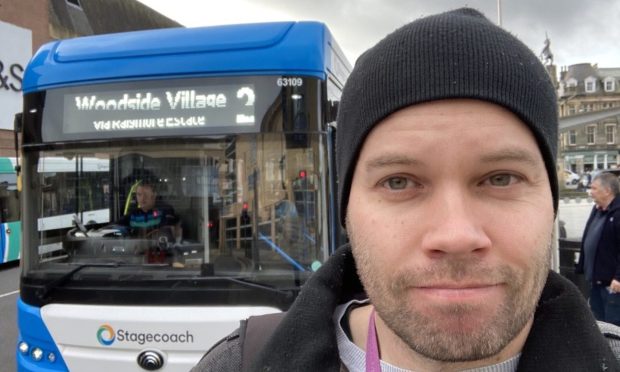
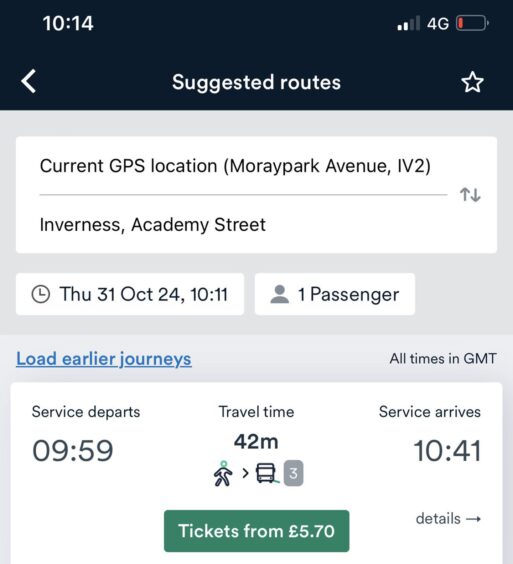
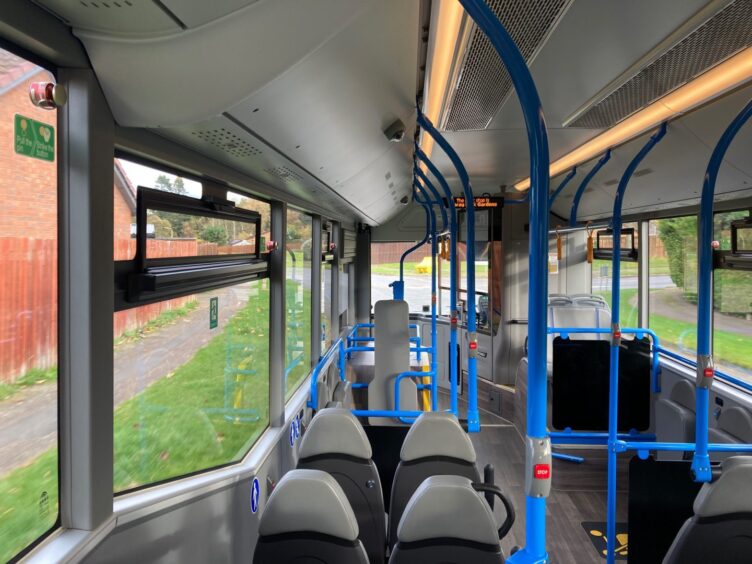
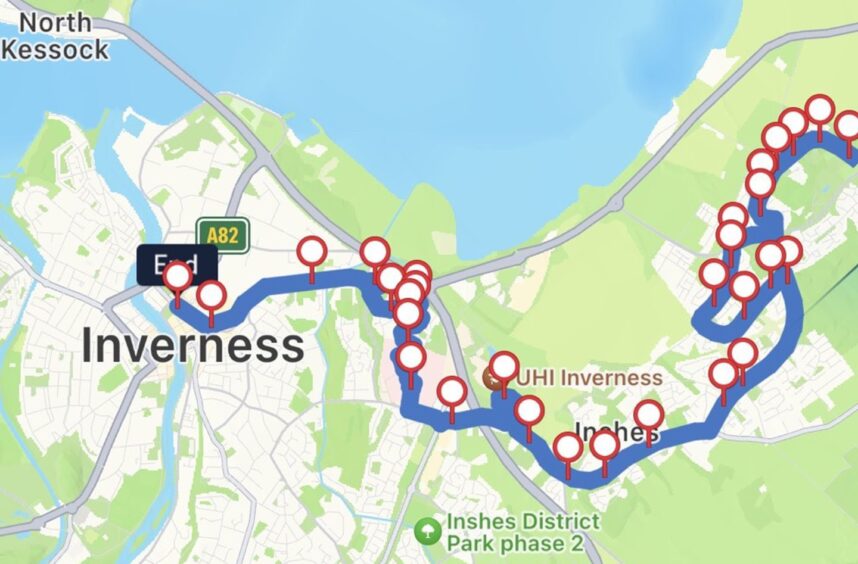

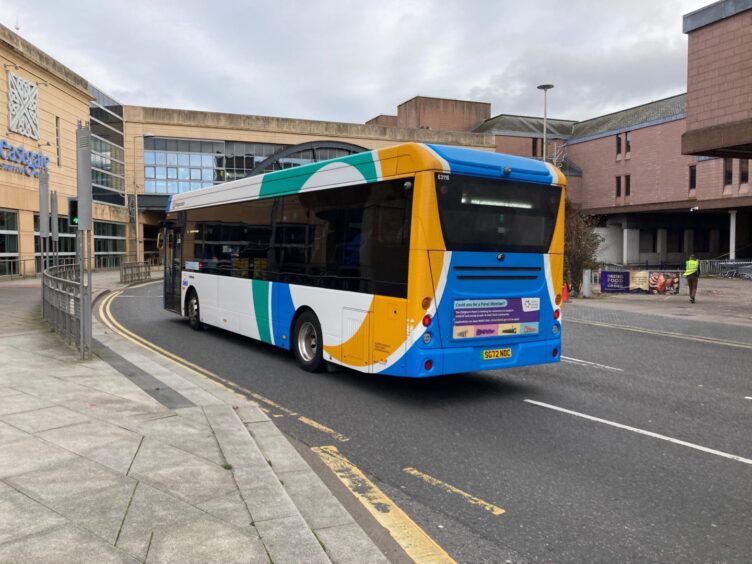
Conversation